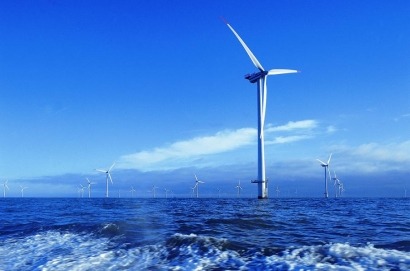
The parties behind the agreement represent 171 seats out of 179 in the parliament. The agreement establishes a framework for the policy on climate and energy up to 2020 and outlines the direction Denmark will take until 2050.
"It is the broadest, the greenest and the most long-term energy agreement that has ever been reached in Denmark. In our everyday political work, the parties are different shades of red and blue. But together we have laid down the foundation for a green future," says Martin Lidegaard, Minister for Climate, Energy and Building.
The initiatives in the agreement will lead to CO2 emissions in 2020 being 34% lower than they were in 1990. At the same time, the agreement will ensure a stable framework for the business community as a whole, and the energy sector in particular.
It has also been decided to build a total of 3,300 MW of new wind power capacity, which will enhance the capacity with 2,000 MW wind power before 2020. A part of this is two new large offshore wind farms at Kriegers Flak between Denmark and Germany (600 MW) and at Horns Rev of the west coast of Jutland (400 MW). The rest is coming from wind turbines on land and offshore wind turbines in coastal areas. Investments in biomass and biogas will also be made.
"Denmark will once again be the global leader in the transition to green energy. This will prepare us for a future with increasing prices for oil and coal. Moreover, it will create some of the jobs that we need so desperately, now and in the coming years," says Lidegaard.
In 2020, an average household will pay DKK 1300 (€173) more for energy. Companies will pay DKK 200 per employee. The total bill will amount to DKK 3.5 billion (€467 million) in 2020. In return, there is money to be saved, because we will use less energy, and because we will be less vulnerable to rising prices for oil, coal and natural gas.
"Investments are necessary if we are to switch society towards green energy. And the bill will be much bigger if we do not act in time. With this agreement, the parties are sending a clear message that we all assume responsibility and are taking the challenges of the future seriously. It is truly a great day for energy policy in Denmark," explains the , Minister for Climate, Energy and Building.
The new energy agreement has been applauded by both the green community and the industrial organisations in Denmark.
For additional information:
The Danish Minister for Climate, Energy and Building, Martin Lidegaard can be contacted via Head of Press, Claus Kaae-Nielsen at clkaa@kebmin.dk

